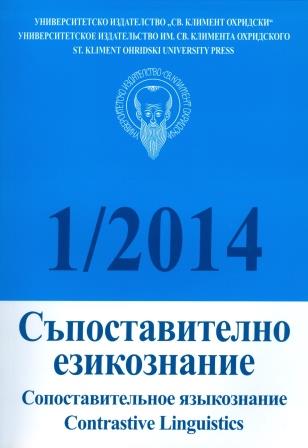Ellipsis and Closest-Conjunct Agreement
Ellipsis and Closest-Conjunct Agreement
Author(s): Bozhil HristovSubject(s): Language and Literature Studies
Published by: Софийски университет »Св. Климент Охридски«
Keywords: agreement; coordination; ellipsis/reduction; Lexical-Functional Grammar (LFG).
Summary/Abstract: This article examines two conflicting views on agreement with the closest controller in a coordinate phrase. It has often been assumed that agreement with one of several conjoined nouns should be derived via the underlying repetition of the adjectival or verbal target beside each controller, followed by the subsequent deletion or ellipsis of the identical items, whereas resolved agreement with features of the coordination as a whole presupposes an underlying coupling of the controllers which involves no ellipsis or deletion procedures. Claims that reciprocal targets like ‘embrace’ are incompatible with single-conjunct agreement have previously been argued to support the ellipsis hypothesis. The evidence adduced below demonstrates that there are targets which agree with the nearest conjunct, but at the same time they cannot be reconciled with an ellipsis scenario due to pragmatic, semantic or syntactic contradictions. An alternative account of the facts is put forward, relying on constraints imposed on the controllers by individual targets. This lexicalist approach is preferable because it takes meaning on board and works equally well for conjoined and non-conjoined environments.
Journal: Съпоставително езикознание / Сопоставительное языкознание
- Issue Year: 2014
- Issue No: 1
- Page Range: 20-36
- Page Count: 17
- Content File-PDF

